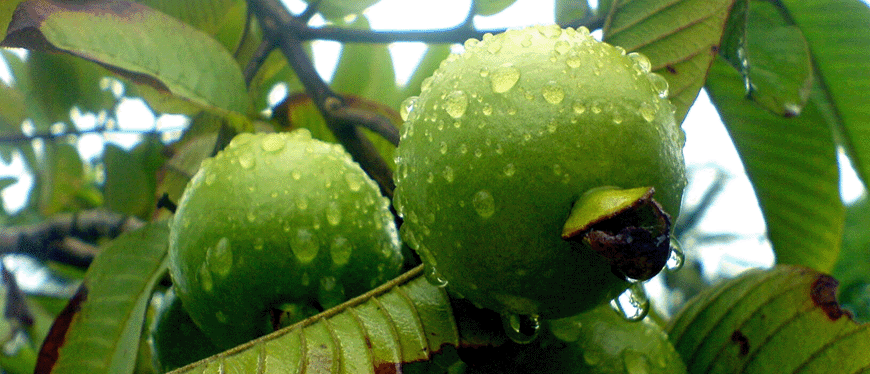Guava - Research achievements at IIHR, Bangalore
The
total germplasm collection stands at 60 in guava including three
wild species and two new additions from Udaipur during 2016-17.
In red pulped guava type, H-5337 (Purple local x Allahabad Safeda) has been identified for dark red pulp and medium sized fruits (200 g) with medium soft seeds (9.5 kg/ cm2). Another hybrid H-724 (Apple Colour x Purple Local) produced medium sized fruits with red pulp, good TSS (10.85 o B) and medium seed hardiness (9.2 kg/ cm2).
In rainfed guava, application of enriched coir pith recorded overall yield advantage of 38.4% in terms of higher number of fruits/ plant in first year.
A spacing of 2.5m x 1.25m was optimum for high density planting system in guava and regulation of crop canopy was good at 70% pruning intensity in winter.
In eastern coast humid tropics, branch bending in guava during January resulted in highest fruit yield during rainy season whereas bending in May recorded highest fruit yield in winter.
Arka Kiran, a guava hybrid released
by IIHR with deep pink coloured firm pulp, high TSS and good
fruit weight, suitable for both table and processing purposes,
is gaining popularity in Vijayawada region of Andhra Pradesh
through Ms. Bloom Irrigation Systems, a progressive nursery
since 2014.

